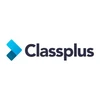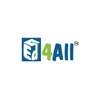How Can LMS Software Promote Hybrid Learning in Schools

A hybrid learning method, as the name suggests, blends both in-person and online teaching experiences. Hybrid learning models tend to offer a traditional learning experience in a virtual classroom.
When it comes to online or hybrid learning, the importance of an LMS is unavoidable. A learning management system (LMS) is a software application that offers the framework for managing all aspects of the learning process. The software allows administrators to store all their training material, present educational content to students, and track curriculum progress.
Ever since the COVID-19 pandemic hit, educational institutions started looking for new ways to facilitate education. This is when the popularity of LMS sore. This specialized software can significantly help improve an education program’s effectiveness and lower a school’s overall curriculum expenses.
Importance of Hybrid Learning in the Post Pandemic Era
In 2021, when the pandemic was at its peak, schools and other educational institutions favored online learning and blended or hybrid classrooms, replacing the traditional in-person teaching model. Since then, people have agreed that hybrid learning models can be effective.
A hybrid learning model can offer students a number of advantages. For instance, students who require extra time for completing specific assignments owing to learning difficulties, or who require more explanation of a given topic, can get access to all the tools they need. That’s not all, these tools are available in real-time.
Besides, in the case of a hybrid learning model, students can continue their education as if they are attending the classroom physically. A hybrid model provides complete flexibility. Collaboration with peers and teachers is also a seamless experience in the hybrid learning model.
Speaking of the post-pandemic era, we should not forget that the COVID-19 virus is yet to go away forever. The next wave of infection can arrive out of nowhere. In this situation, it is absolutely necessary for students to keep their guards active.
In that regard, schools can implement a hybrid learning model, so that if an emergency arises, like another pandemic, the learning process won’t stop. Teaching and learning can go on from anywhere.
How Can LMS Software Facilitate Hybrid Learning?

One of the key aspects of hybrid learning is the ability to provide a personalized learning experience. LMS software does exactly the same. Personalized learning often results in an increased students’ performance, and is easier to implement in hybrid classrooms.
Students’ communication abilities improve as a result of blended learning. According to a new global study by the World Economic Forum, seven out of ten persons globally (72 percent) believe that higher education would be done online majorly in five years.
LMS software reduces frequent travel for training and teaching, reduces training expenses and minimizes the need to have physical setup for knowledge sharing.
Further, training and knowledge sharing is more consistent and centralized through. A modern and top LMS tool. It provides a secure and easy source of recorded lectures, course materials, and instructions. The software also provides performance reports, goals progress, and more.
We are living in such an era when geographical limit isnn’t an excuse for hindrance in education. An internet connection is all that both parties (teachers and students) need, as well as a good LMS like Teachmint.
Suggested Read: Best Learning Management (LMS) Software for Small Business
Benefits of Using Teachmint for Hybrid Learning

Teachmint LMS is a popular learning management system that is helping schools transform digitally and be future ready. It supports the hybrid operating models and lets teachers and students interact online for knowledge sharing. Teachers can easily share study materials, assignments and videos to facilitate uninterrupted learning.
Teachmint helps manage your school intelligently with key insights and analytics. It has dedicated modules for teachers, students, parents and administrators to tranform the age-old practice of knowledge sharing.
Let’s look at some of the noteworthy benefits of Teachmint for hybrid learning:
Seamless communication: Teachmint makes it easier for teachers and students to communicate. It eliminates distractions that are otherwise common with traditional teaching methods. Teachmint’s learning environment helps students remain more focused and attentive. In case a student finds it difficult to comprehend an idea, they can raise their hands using pre-designed icons. Teachers can notice the hand-raise in real-time and answer the student’s query.
Self-paced learning: With Teachmint LMS, you can record lectures for the future reference. Teachers can share e-learning materials on LMS that students can access at any phase of their learning. Instructors can also automate the evaluation process, which ensures transparency.
Saves effort and time: Teachmint helps manage administrative tasks (attendance, parents queries, fee management), which in turn, saves a lot of time and effort. Further, Teachmint allows instructors to delegate tasks to students, which they can complete as per their convenience. This entire process can improve accountability, responsiveness, and responsibility among teachers and students.
State of the art learning management: It promotes digital interaction and facilitates the sharing of study materials. Supports unilimited file uploads, and share tests and assignments, and manage recorded lectures.
Track analytics: Teachmint allows administrators to intelligently manage their curriculum and processes. They can track key metrics to improve the overall educational quality.
Free version available: Teachmint offers a free version, which comes with necessary tools and capabilities, such as unlimited two-way Live class and recording, online tests (including auto-graded MCQs), etc. The free version also includes modules for digital content sharing, dashboard for institute administration, and teacher-student chat features.
Conclusion
Thanks to advanced LMS technologies like Teachmint, learning is free of any barrier now. The benefits of LMS are many, from data security to cost-effectiveness and quick information access. If used in the right way, LMS can improve an institution’s overall operational efficiency by streamlining all processes, not just the teaching curriculum. With the right analytics tracking features, you can improve your school’s core competency.
FAQs
What is a hybrid approach to teaching?
A hybrid teaching model is the new generation education model that aims to provide holistic learning experience in a virtual setting. It gives students the option to either come to school in person or learn from home.
What is the difference between hybrid and blended learning?
Blended learning combines eLearning and conventional learning methods. On the other hand, hybrid learning gives students options to decide whether they want to learn in person or online.
What is hybrid learning in schools?
A hybrid learning school model refers to a system in which teachers simultaneously conduct both online and offline classes.
What are the five elements of hybrid learning?
The five elements of hybrid learning are: Learning environment, class community, engagement and interactivity, lesson design, and assessment/feedback.
What is a hybrid classroom?
A hybrid classroom is a new-age learning environment that includes students present in a physical classroom as well as those who are attending the class virtually.
Related Categories: Campus Management Software | School Management Software | Educational Software | E-Learning Software
The Techjockey content team is a passionate group of writers and editors dedicated to helping businesses make informed software buying decisions. We have a deep understanding of the Indian software market and the challenges that businesses face when choosing the right software for their needs. We are committed... Read more











.png?d=100x100)

















